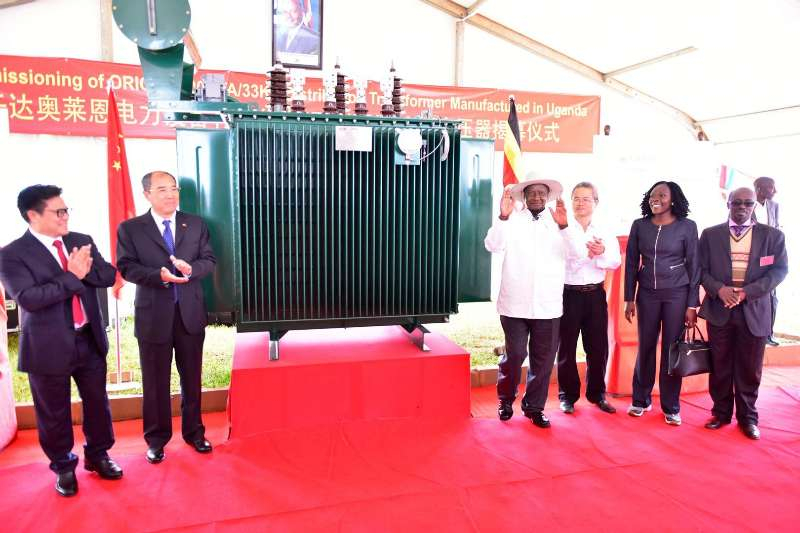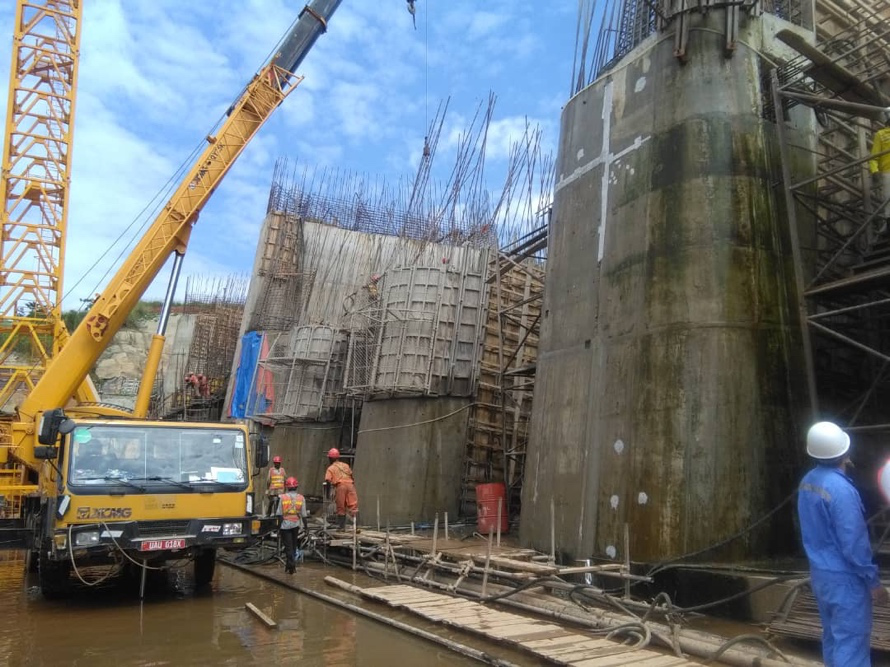

China's Belt and Road Initiative (BRI) has contributed immensely to the development of various countries in Africa.
In my country, Uganda, a number of infrastructure projects have broken ground, including the Kampala-Entebbe Expressway connecting Kampala City to Entebbe International Airport.
It used to take me two hours to drive from Kampala to the airport, but the expressway cuts travel time to 25 minutes.
Industrial parks in Mukono, Mbale, Nakaseke and Luwero are all built under the BRI framework. These projects have not only contributed to the development of Uganda, but also created local jobs and eased transport in and outside the central business district.

Uganda's President Yoweri Museveni and Zheng Zhuqiang commissioning Orion, a Chinese invested Company in Namanve Industrial Park. This is one of the companies that employs Ugandans. /Courtesy of Mubarak Mugabo.
Still, the BRI is facing criticism from some parts of the world amid allegations that it is a "debt trap" and a scheme by China "to colonize Africa."
I'd like to first address the colonial scheme allegations. The proponents of this claim only aim at discrediting China in the eyes of Africans because they know the BRI offers a win-win cooperation and unlocks Africa's strategic bottlenecks.
A few years back, Ugandan President Yoweri Museveni identified 10 bottlenecks which he believed to have hindered Uganda and Africa from developing. Poor infrastructure ranked among the top three. This is exactly what the BRI is trying to unlock.
In many African countries, road connectivity is miserable and electricity supply is not ideal. Seven years ago, load-shedding in Uganda became normal.
Electricity, for instance, in some African countries is 17 kilowatts per capita. No country can develop without enough electricity, as the cost of doing business would be high.
Uganda's kilowatt per capita is now at 200, but after the completion of the 183MW (megawatts) Isimba and 600MW Karuma dam projects – both funded by China under the BRI – Uganda will have excess electrical capacity for domestic and industrial use.

The first phase construction of 600MW Karuma dam. /Courtesy of Mubarak Mugabo.
The kilowatt per capita is expected to triple, reducing the cost of doing business and blackouts will become history.
If the BRI is a colonial ploy, then I am proud to have a colonizer who labors to stop power outage and reduce the cost of doing business in their colony.
The known colonialists impoverished Africa until our forefathers chased them away. They looted the resources of the continent, took raw materials and introduced finished expensive products. For a long time, Africa served as a market for the colonialists' industries.
China through the BRI is empowering Africa to be independent by building industries, providing jobs and passing on skills to the locals.
Could this be the reason why the known colonizers are now against the BRI? The colonizers want to give Africans fish; the BRI is teaching Africans how to fish.
If the BRI is a colonial scheme, then I am proud to have a colonizer who labors to build industries and provide employment for people of their colony!
Secondly, these critics, whom I call enemies of Africa, have also labelled the BRI a "debt trap," accusing China of imposing a huge debt on African countries which they could fail to pay back and lose resources as collateral.

The first phase construction of 600MW Karuma dam. /Courtesy of Mubarak Mugabo.
These enemies seem to forget one thing: Before the BRI, Uganda and African countries had gotten loans – and they still do – from elsewhere. But why has Africa opted for the BRI?
Developed countries provide loans to African countries with unfair conditions in the name of ensuring human rights, hence interfering in the internal politics of our countries. Some of these conditions are completely against traditional African cultures.
In other words, the loans are provided with directions on what, when and how to use them.
The BRI loans have neither strings attached nor political conditions. In fact, China has never interfered in the internal affairs of Uganda. This gives my country more confidence in the BRI than anything else.
While these enemies oppose the BRI, I was very impressed by Chinese Premier Li Keqiang's recent report on the performance of the BRI.
"To date, a total of 171 inter-governmental cooperation documents have been signed with over 150 countries and international organizations," Premier Li said while addressing the opening session of the National People's Congress in March this year.
African countries have been keen on joining the BRI, but they're not the only ones. Other nations along the Belt and Road are in Europe, Asia and Latin America. So, if the BRI was a debt trap for Africa, why are others opting for it?
The benefits of infrastructure projects are long term, and this gives our enemies time to spread their harmful propaganda against the BRI. In my country, the results are now visible and a shared future for mankind is a sure deal.
If the BRI is a colonial scheme, then it is a developmental one because it labors to empower me, my people and my country – and whoever fights it, fights Africa.